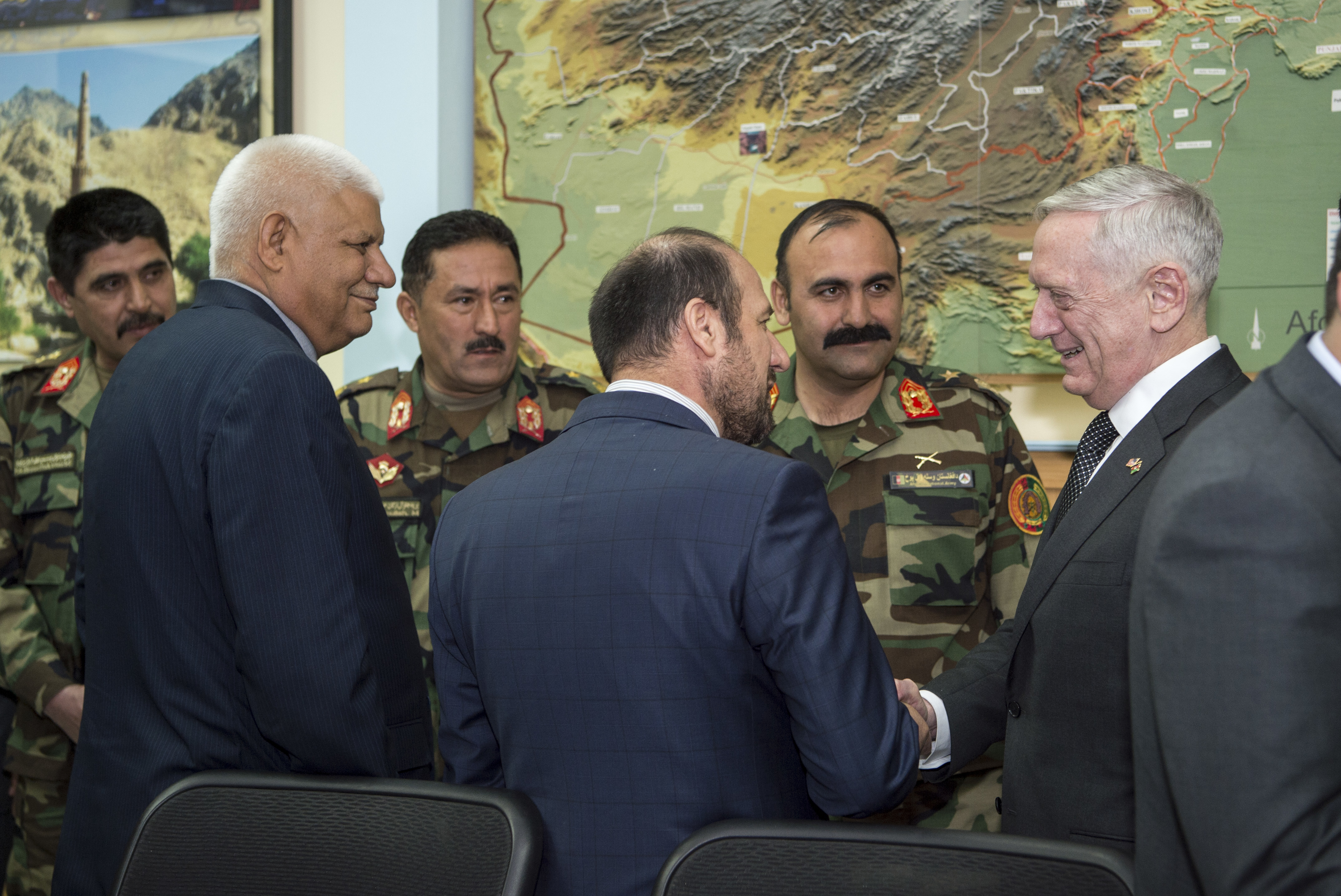
Secretary of Defense Jim Mattis speaks with Afghanistan's Minister of Interior Affairs Mohammad Jahid and Afghanistan's Minister of Defense Abdullah Habibi at the Resolute Support Headquarters in Kabul, Afghanistan, April 24, 2017. DOD photo by USAF TSgt. Brigitte N. Brantley.
The death of the emir of ISIS in Afghanistan is a “victory on our side” for the time being, but the setback is only limited and there’s a lot more to do in the fight, Defense Secretary James Mattis said.
A July 11 US strike and raid on ISIS-Khorasan’s headquarters in Kunar Province killed Abu Sayed and other ISIS-K members. Sayed had been the leader of ISIS-K since April—US and Afghan forces killed both of the group’s previous leaders.
Mattis, speaking with reporters on Friday, said the significance of the strike is “you kill a leader of one of these groups and it sets them back for, you know, a day, a week, a month.” That means the US and Afghan forces need to continue their advance against ISIS-K to “send a clear message to ISIS that there is no sanctuary for their fighters in Afghanistan,” Pentagon spokeswoman Dana White said in a Friday statement.
The strike and raid comes as Pentagon leaders are finalizing their way forward in Afghanistan, including setting the troop levels to continue the fight against both ISIS and the Taliban. Mattis said Friday that his plan is not finalized yet, and though estimated numbers of about 4,000 more troops “may turn out to be right … I’m not giving it any credence right now.”
The Pentagon needs to support the State Department’s “perspective of the way ahead.” The planning has taken an extended amount of time because that’s how strategy works, Mattis said.
“Welcome to strategy,” he said. “Seriously, this is hard, and there’s a reason we’ve gotten into some wars in our nation’s history and didn’t know how to end them. This is hard work, and anyone who says otherwise is someone who has not had to deal with it, or deal with the consequences of the decisions they made. It is hard work.”
